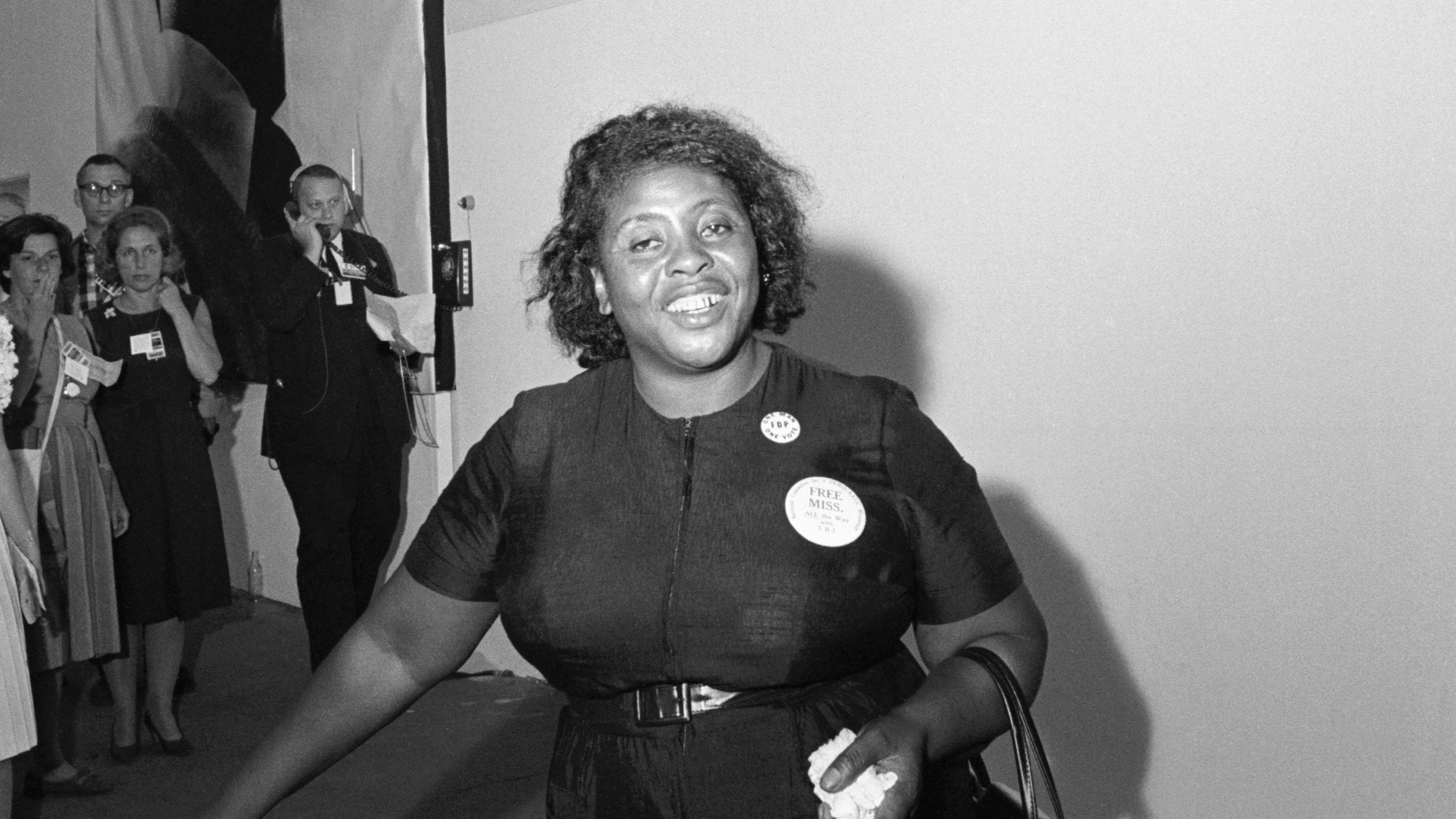In August 1920, the ratification of the 19th Amendment saw the much-sought after vote extended to women in the U.S after a decades-long battle for suffrage. In reality, it was a victory for some but not all — the enforcement of Jim Crow laws in certain states denied millions of Black women the vote, while a lack of citizenship status and discriminatory loopholes marginalized whole communities of Hispanic, Latinx, Native and Asian Americans. Activists and advocates like Fannie Lou Hamer, Zitkála-Šá, Diane Nash and Dolores Huerta would continue to seek equitable representation for women and men of all races and social classes in the decades preceding and following the next major reform: the Voting Rights Act of 1965.
The vote can only ever be the first step, giving voice and visibility to enact further change. For instance, since Women’s Equality Day was designated in 1973 to commemorate the 19th Amendment, disparities have persisted. The struggle for bodily autonomy, equal pay, maternity rights, freedom from violence and discrimination are as much ours as they were our mothers and grandmothers.
In a world destabilized by the pandemic, climate change and ongoing conflicts, the movement for women’s equality is not a historical matter, sealed in the archive. Myself and my colleagues at the Getty Images Archive assembled this gallery to draw attention to these incredible women, and further demonstrate the power of the line we continue to draw–connecting the past to the present. As Hamer once said: "Nobody's free until everybody's free."
Sojourner Truth
“If the first woman God ever made was strong enough to turn the world upside down all alone, these women together ought to be able to turn it back, and get it right side up again!”
Those powerful words are from the abolitionist Sojourner Truth, as she demanded equal rights for women at the Ohio Women's Rights Convention in 1851, which came to be known as her “Ain’t I a Woman?” speech. But she was a true powerhouse in all senses of the word, a leader in her time and ours.
But we must recall the environment she played in, and how, in the years leading up to the U.S. Civil War, the women’s rights and anti-slavery movements found solidarity in their call for equality and emancipation, although schisms soon developed between the two campaigns. Black advocates of the women's vote were often fighting for universal suffrage, regardless of race or class as well as gender, necessarily binding their own cause to the wider civil rights struggle. Courting the support of the segregated Southern states, the National American Woman Suffrage Association feared that alignment with the Black suffrage movement would jeopardize their singular objective.
When the 15th Amendment was ratified in 1870, enshrining the right of Black men to vote, the movement became further divided. Groups such as the National Association of Colored Women, led by Mary Church Terrell, and the Alpha Suffrage Club, co-founded by Ida B. Wells, counteracted the increased marginalization of Black American women within the enfranchisement struggle. As with the reality of the 15th Amendment, when the 19th Amendment came into effect in 1920, discriminatory state laws and practices prevented many Black women from exercising their right to vote. The Black suffrage movement would persist right up to the Voting Rights Act of 1965.
Zitkála-Šá
Activist, author, and educator, Zitkála-Šá is photographed here in 1926, the year in which she co-founded
the National Council of American Indians, a forerunner of today’s National Congress of American Indians.
Born in 1876 and of the Yankton Dakota nation, her work examined the intersection between Native
American and English-speaking cultural identities in the early 20th century.
An advocate for women’s rights during the era of the New Woman, Zitkála-Šá founded the Indian Welfare
Committee of the General Federation of Women's Clubs in 1924 and organised voter-registration drives
amongst Native American communities.
Fannie Lou Hamer
Appalled by the checks of Jim Crow laws, which effectively denied Black Americans the right to vote, Hamer led a series of resourceful, brilliantly-executed campaigns and social initiatives. As a community activist and spokeswoman, the racism Hamer personally endured was deeply violent. In 1961, she had surgery to remove a uterine tumor, and during the operation, a white doctor performed a hysterectomy without Hamer’s consent. Years later, after adopting two daughters with her husband, one of her children was to die of internal bleeding and was refused hospital admission because of her mother's activism. Further, Hamer’s own health never fully recovered after being beaten in police custody in 1963.
Ostracized by some establishment figures for her apparent “illiteracy”, Hamer was a convincing and inclusive orator. Detailing her own experiences, she inspired confidence where fear and intimidation had been used to disenfranchise Black American citizens and the rural poor.
Hamer is pictured here at the 1964 National Democratic Convention, where she spoke as co-founder of
the Mississippi Freedom Democratic Party; she later helped establish the National Women's Political
Caucus. The title of her celebrated speech (and gravestone inscription), “Sick and Tired of Being Sick and
Tired,” has been revived by today’s Black Lives Matter movement.
Dolores Huerta
Praised for her leadership of the labor movement, Dolores Huerta championed grassroots organization
and the rights of migrant agricultural workers in America. It was through her activism that she became a
“born again feminist," befriending Gloria Steinem in her efforts to secure support for the Delano grape
strike. The two women would assimilate their causes – Huerta recognizing the inherent feminism in her
promotion of social justice, and Steinem the need for greater representation within the women’s rights
movement.
Photographed in December 1970, Huerta — then vice president of the United Farm Workers Union — joins
Ethel Kennedy in a vigil for Cesar Chavez outside the Monterey County Jail. The UFWOC leader, Chavez
has been imprisoned for violating a court injunction prohibiting a consumer lettuce boycott.
